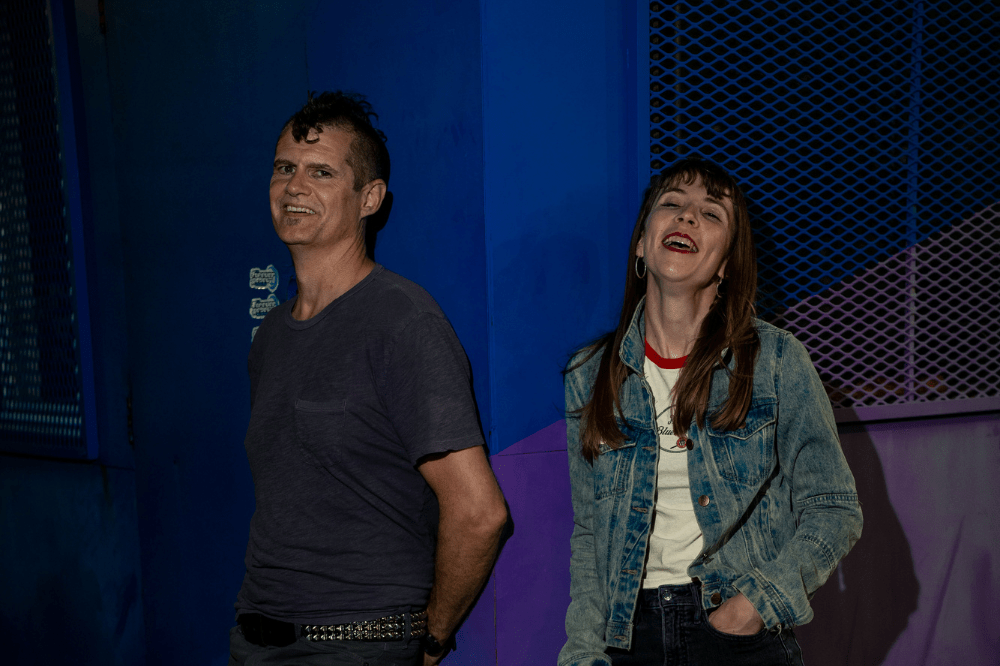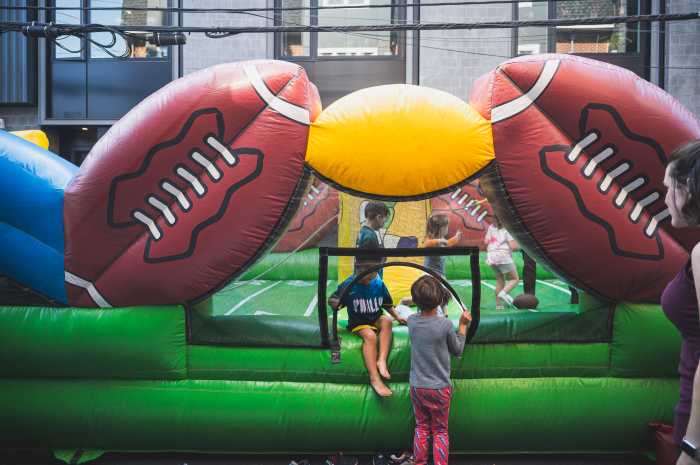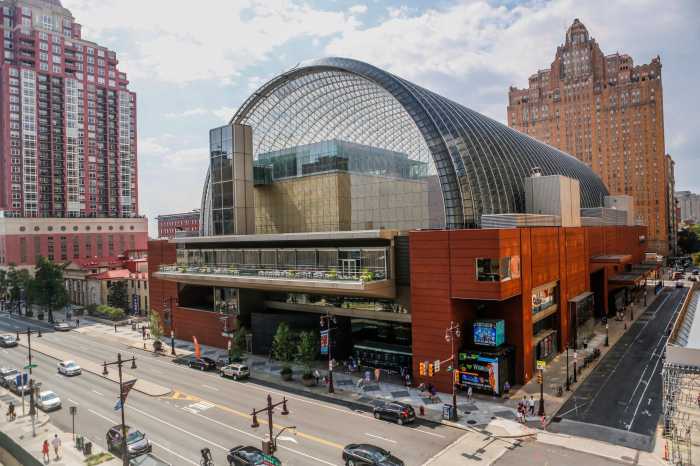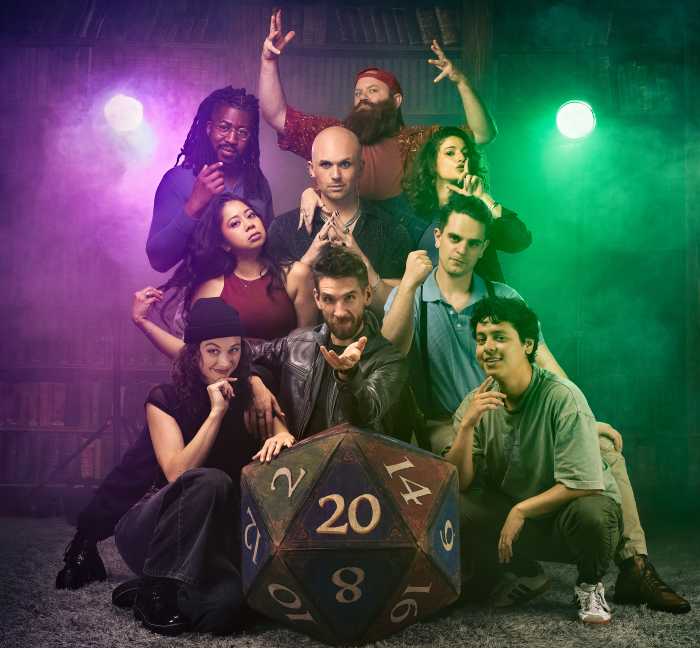The legendary Philadelphia studio MilkBoy — which has hosted notable musicians like Dave Mathews, Meek Mill and Miley Cyrus — is celebrating 30 years this month with an end-of-summer block party, featuring live music, games, vendors, activations, and more.
Ahead of the festivities, owner Tommy Joyner spoke with Metro Philadelphia to discuss the rich history of the studio and more.
When you hear 30 years, what’s the thought that goes through your head?
It sounds like we’re talking about somebody else. It’s been a long time, but when I started MilkBoy, I was a kid; I was just out of college. I didn’t expect it to last three months, but it lasted 30 years. It was something that I started because I’m a musician, and I was working on a record for my own musical act. And people liked the records I made, so they asked me to do more, and people told other people. It became a thing that’s lasted a long time, and I’ve devoted a lot of my life to this pursuit of music and what became engineering and production. But it all started because I’m a musician.
I still play very frequently in my band, Pep Rally. I’ve got a musical act that’s playing at the block party, as a matter of fact. That’s a kind of career shift for me. I’m re-energized about making music for myself, which has been something that I’ve never really done. I’ve always been the side guy in the band. I’ve always helped people make their records. It was a very easy role for me to fall into being the engineer or the producer because that’s a support role.
I love that, I love people, and I love music. I have a good time doing all different kinds of music and making it and helping people get their sound out of their head and onto ‘tape’ onto the web.
What was the vision for MilkBoy when you first started it?
Well, it didn’t have any sort of vision beyond getting a record made for my own band, to be honest. But, to do that, we had to pay rent, so I had to take clients; I had to look for other bands to record as well. So that was the vision, to make some records. And when we started it, we started thinking about Philadelphia and its place in music.
At the time, in 1994, Philadelphia music was in decline. I think it kind of goes through phases. We’d come out of this pretty nice phase in the 80s, and then the 90s, it started to decline a bit, and then it kind of started to ramp back up, mid-to-late 90s. We wanted to do something larger in the Philadelphia music scene.
What do you attribute to the success [MilkBoy] has seen over the past 30 years?
Hard work. Not to toot our own horn or anything like that, but we were in a place where all our friends were starting families and buying houses and stuff that we couldn’t even consider. We would take all the money that we made, live as simply as possible, and then take all the rest and put it back into new gear. So we were just relentless about improving, and because of that, we were able to sustain ourselves for a lot of years. And we also did improve. We kept getting better. And I think people respond to that; people respond to hard work.
It seems like you have adapted to Philly pretty well.
I love Philadelphia. I’ve lived here more years than I haven’t, you know. I love [that] Philadelphia is an incredibly cool city, and it’s still affordable. I mean, people here are lovely. People here are so nice, and I just love it. I think the city’s got a great vibe, and it’s very much home to me.
How does it feel to see some of these local musicians come through these doors and further their careers through Milkboy?
It’s more of like a father-child relationship. There are people who come through that have never been in the recording studio before and even when they’re on record labels, we tend to do a lot of people’s first record. So like when Kelani was in, it was really her first album that she was working on. When Jill Scott came through before when this was Larry Gold’s studio, it was her first album, so there’s a lot of showing the ropes that goes on in my life, which I enjoy, and I like talking people through it, and watching their eyes light up when they figure out what they just heard in their head is now on the hard drive.
There are a lot of musicians out on the road supporting other players and other stars that are Philly bands. I feel proud of that; very proud of Philadelphia and our musical abilities here in this city; we still value music in a way that produces stars and produces incredibly high-level musicians.
Over the past 30 years, do you have a signature memory at MilkBoy?
Dave Matthews getting his morning coffee at the coffee shop before he came to the studio. Jason Kelce and Connor Barwin used to ride their bikes to MilkBoy, and they’d hang and crush beers and see whatever cool indie band was playing. Having one of my childhood heroes, James Taylor, in the studio and having him take a look at my grandfather’s pump organ and decide that he wants to record that on his record. It was thrilling having Miley Cyrus walk through and be like, ‘Hey, anybody want cheesesteaks? It was like her breakout record. And that, and she was very earnest, hardworking and kind, and just wants to get somebody a cheesesteak because she’s about to order.
Watching the Grammys on a night that we won six Grammys, and I had expected to watch about 15 minutes of the telecast, and I didn’t go to sleep, and, you know, I couldn’t go to sleep when it was over at one, I was wired.
To take a glimpse into the history of MilkBoy and help celebrate 30 years, be sure to stop by for their 30th-anniversary block party on Saturday, Sept. 21, from noon to 8 p.m. at 4th and South streets. For more information, visit wooderice.com



























